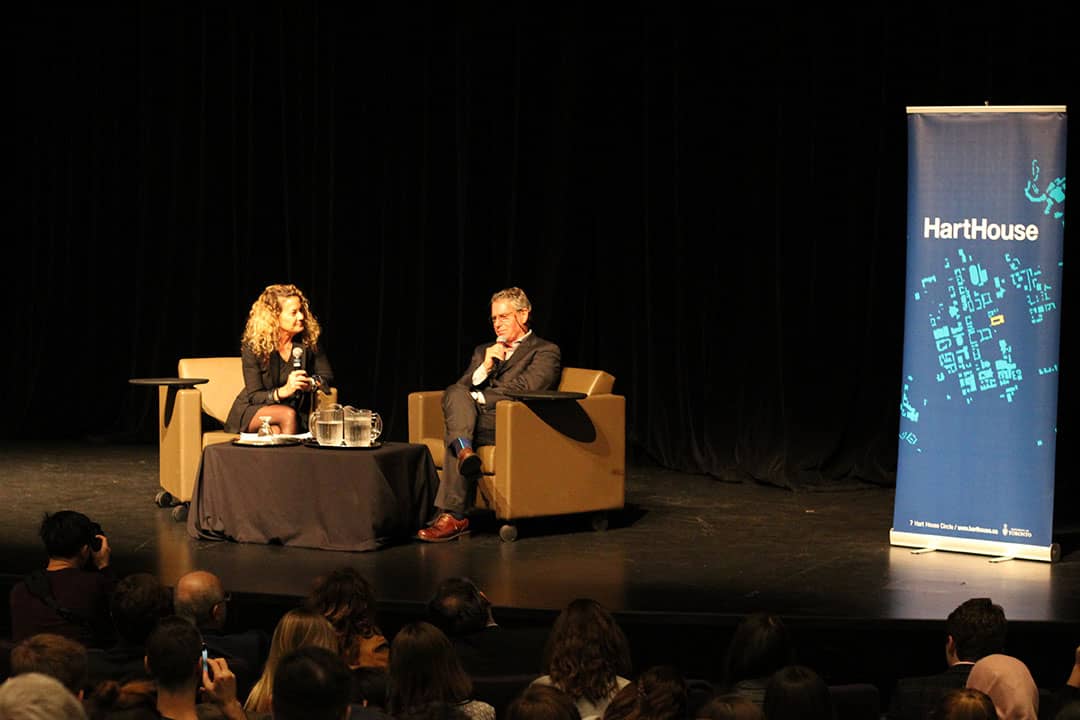The Hart House Debates and Dialogues Committee held an event called “The Rule of Law in an Age of Fear” on October 18. It featured the lawyer of Omar Khadr, Dennis Edney. Khadr is a Canadian, born in Toronto, who was sent to Afghanistan by his Al-Qaeda-affiliated father. He was captured at age 15 by US soldiers after allegedly throwing a grenade that killed US Army Sergeant Christopher Speer. At age 16, Khadr was taken to Guantanamo Bay and held there for 10 years. Khadr sued the Canadian government, claiming that his rights under the Canadian Charter of Rights and Freedoms had been infringed upon. He received a $10.5 million settlement in 2017.
Edney spoke on topics including the 2016 US election, fear mongering, Islamophobia, and his experiences at Guantanamo Bay. The intention of his speech, he stated, was to “[challenge] you to question whether the concept and practice of justice is being carried out in your name.”
Edney described Guantanamo as a microcosm to the breakdown of the rule of law. He pointed out the rarely talked about secret prisons in Guantanamo Bay, designed for enhanced interrogation techniques. “It doesn’t take much imagination to understand what that means,” said Edney. “Omar Khadr spent most of his life in one of those places.”
“I decided to write to my government, the Liberal government of the day, to inquire as to the status of Omar Khadr and to remind them of their international obligation to assist a Canadian citizen, under international law and under international humanitarian law,” said Edney. He received no response and went on to defend Khadr. He said he sacrificed a great deal in doing so, spending life savings, missing both of his children’s graduations, and giving up “a huge part” his business.
In his first meeting with Khadr, Edney found the young man shackled to the floor, “his whole body suffering from extensive shrapnel injuries.” Edney said that he had trouble controlling his emotions. “I didn’t know whether to shout, to scream, to cry, I didn’t know what to do. I was not prepared for what I was witnessing.” A particularly horrific experience, he said, was witnessing the sexual abuse of every single detainee “because there is no greater way to get to a Muslim, who prides in his body.”
The Liberal government, Edney stressed, did not do enough to repent for “the horror that they created, assisted in,” saying the party gave only “half an apology.”
Edney broadened his remarks, speaking about the current geopolitical state of the world: “The political temperature has been dominated by populists such as Trump, and European nationalists who want to tighten borders and restrict the flow of refugees from war-torn countries, especially Muslims.” He went on to describe the entire Trump campaign as based on fear and bigotry, comparing the security measures proposed during the Republican presidential campaign to those of Nazi Germany.
In his closing words, Edney spoke on how an individual can make change in their own society. “We may not have control of world events, but we do have control over how we respond to the world. We do have control [over] how we treat each other. So in the end it’s not about policies that work, it’s about forging consensus, fighting cynicism, fighting the critical will to make change, and to find the character to open our hearts to one another.”


